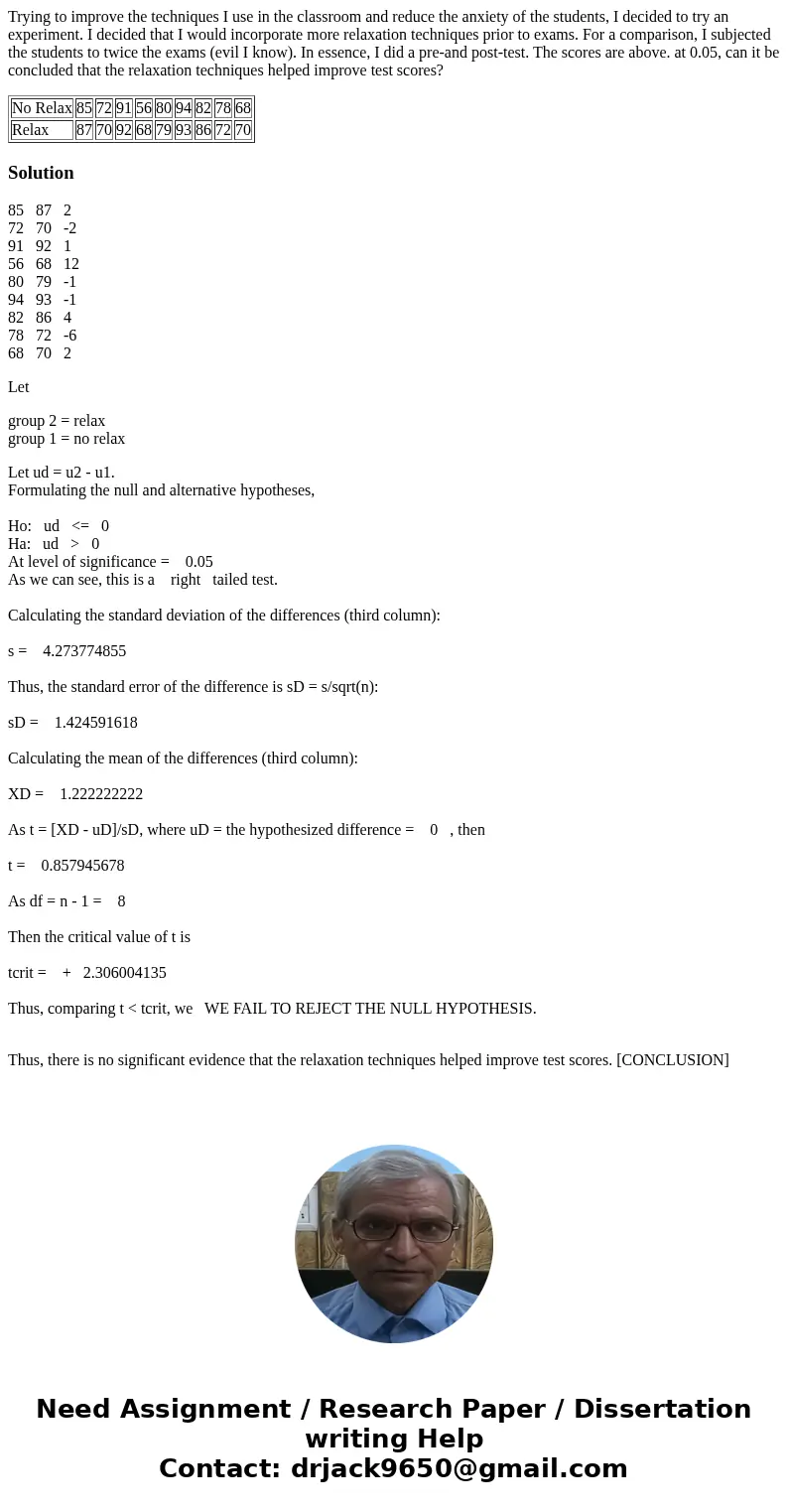Trying to improve the techniques I use in the classroom and
Trying to improve the techniques I use in the classroom and reduce the anxiety of the students, I decided to try an experiment. I decided that I would incorporate more relaxation techniques prior to exams. For a comparison, I subjected the students to twice the exams (evil I know). In essence, I did a pre-and post-test. The scores are above. at 0.05, can it be concluded that the relaxation techniques helped improve test scores?
| No Relax | 85 | 72 | 91 | 56 | 80 | 94 | 82 | 78 | 68 |
| Relax | 87 | 70 | 92 | 68 | 79 | 93 | 86 | 72 | 70 |
Solution
85 87 2
72 70 -2
91 92 1
56 68 12
80 79 -1
94 93 -1
82 86 4
78 72 -6
68 70 2
Let
group 2 = relax
group 1 = no relax
Let ud = u2 - u1.
Formulating the null and alternative hypotheses,
Ho: ud <= 0
Ha: ud > 0
At level of significance = 0.05
As we can see, this is a right tailed test.
Calculating the standard deviation of the differences (third column):
s = 4.273774855
Thus, the standard error of the difference is sD = s/sqrt(n):
sD = 1.424591618
Calculating the mean of the differences (third column):
XD = 1.222222222
As t = [XD - uD]/sD, where uD = the hypothesized difference = 0 , then
t = 0.857945678
As df = n - 1 = 8
Then the critical value of t is
tcrit = + 2.306004135
Thus, comparing t < tcrit, we WE FAIL TO REJECT THE NULL HYPOTHESIS.
Thus, there is no significant evidence that the relaxation techniques helped improve test scores. [CONCLUSION]

 Homework Sourse
Homework Sourse